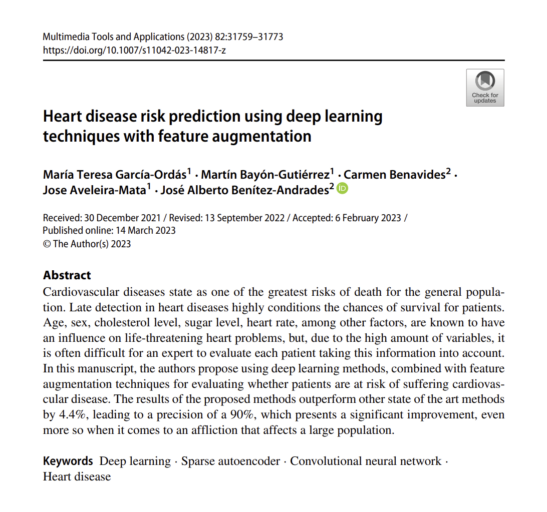Heart disease risk prediction using deep learning techniques with feature augmentation
- Open access
- Published:
- volume 82, pages31759–31773 (2023
- )
Abstract
Cardiovascular diseases state as one of the greatest risks of death for the general population. Late detection in heart diseases highly conditions the chances of survival for patients. Age, sex, cholesterol level, sugar level, heart rate, among other factors, are known to have an influence on life-threatening heart problems, but, due to the high amount of variables, it is often difficult for an expert to evaluate each patient taking this information into account. In this manuscript, the authors propose using deep learning methods, combined with feature augmentation techniques for evaluating whether patients are at risk of suffering cardiovascular disease. The results of the proposed methods outperform other state of the art methods by 4.4%, leading to a precision of a 90%, which presents a significant improvement, even more so when it comes to an affliction that affects a large population.

